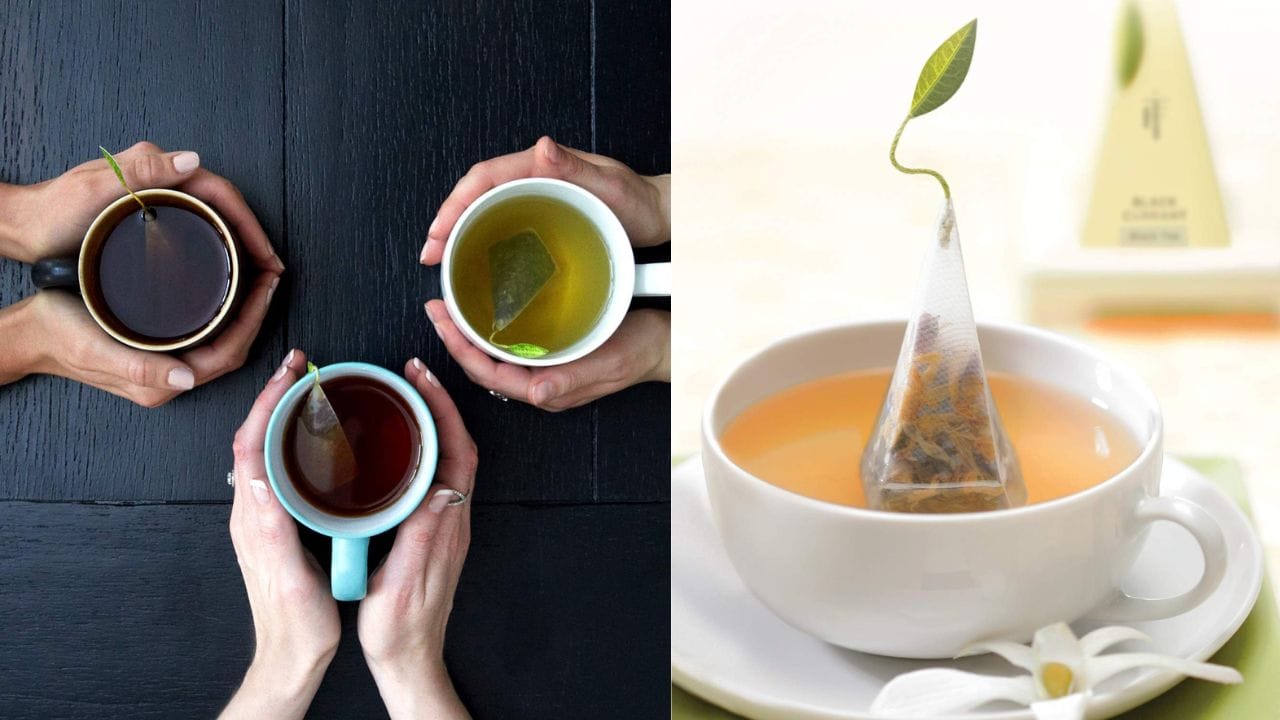Exploring the Side Effects of Blue Lotus Tea: A Comprehensive Guide
Take charge of your decisions and embrace the transformative essence of Blue Lotus Tea with full appreciation. Empower yourself to make informed choices and fully appreciate Blue Lotus Tea's transformative essence.

Blue Lotus Tea, derived from the Nymphaea caerulea plant, has been a staple in ancient Egyptian culture, revered not just for its pleasing aroma but also for its purported health benefits. As modern wellness circles rediscover these ancient remedies, many are drawn to Blue Lotus Tea for its potential effects on sleep, anxiety, and overall relaxation.
However, like any supplement, it's crucial to consider any possible side effects. This article dives deep into what you need to know about Blue Lotus Tea, ensuring you can sip with confidence.
Key Takeaways:
- Understanding Potential Risks: While generally safe, Blue Lotus Tea can have mild side effects for some users.
- Interaction with Medications: It's important to consider how Blue Lotus Tea might interact with other medications.
- Dosage and Preparation: Proper dosage and preparation can mitigate most risks associated with Blue Lotus Tea.
What is Blue Lotus Tea?
Originating from the edges of the Nile River, Blue Lotus (Nymphaea caerulea) is often steeped in hot water to create a soothing tea. This aquatic plant's use dates back to ancient Egyptian times where it was used not just for ceremonies but also for its sedative and mild psychoactive properties. Today, it's enjoyed worldwide for its calming effects.
Historical Significance and Modern Day Use
Historically, Blue Lotus was intertwined with spiritual and health-related rituals in ancient Egypt, often depicted in hieroglyphics. In contemporary times, it has been adopted by those looking to alleviate stress, enhance sleep, and promote relaxation. Its resurgence in herbal medicine circles speaks volumes about its enduring appeal.
Potential Side Effects of Blue Lotus Tea
While Blue Lotus Tea is celebrated for its benefits, it's not without its side effects. Some users report mild allergic reactions, including itchy eyes and mild headaches. These reactions are typically rare and often linked to individual sensitivities rather than the tea itself.
Allergic Reactions and Sensitivities
For those with plant allergies, particularly to other water lilies, caution is advised. The symptoms can range from sneezing and nasal congestion to skin rashes. It's always a good idea to start with a small amount to test for any adverse reactions.
Interaction with Medications
Blue Lotus Tea acts as a natural sedative, which means it can potentially enhance the effects of pharmaceutical sedatives and other medications affecting the central nervous system. If you're taking any form of medication, a conversation with your healthcare provider before adding Blue Lotus Tea to your regimen is crucial.
Considerations for Those on Sedatives
Especially for those on medications for anxiety or sleep disorders, the additive effect of Blue Lotus Tea might lead to increased drowsiness or other related side effects. Monitoring and moderation are key in such cases.
Dosage and Preparation Tips
To enjoy the benefits of Blue Lotus Tea while minimizing risks, proper preparation and dosage are vital. Steeping the tea for 5-7 minutes in hot water is generally recommended. Starting with a lower dose to assess tolerance can also help mitigate potential side effects.
Best Practices for Brewing Blue Lotus Tea
Using about 1-2 grams of dried Blue Lotus flowers per cup of hot water and allowing it to steep adequately ensures that you extract the optimal amount of beneficial compounds without overconcentration, which could lead to side effects.
The Role of Saffron Supplements
Incorporating Saffron supplements can complement the health benefits of Blue Lotus Tea. Saffron is known for its potent antioxidant properties and can enhance the calming and mood-stabilizing effects of Blue Lotus.
Synergistic Effects with Saffron
When combined, Blue Lotus Tea and Saffron supplements can offer a heightened sense of relaxation and improved sleep quality. However, it's important to manage dosages appropriately to avoid any adverse effects.
Legal and Safety Considerations
In most countries, Blue Lotus is legal and considered safe for consumption. However, due to its psychoactive properties, it's wise to check local regulations in your area before purchasing or consuming the tea.
Regulatory Status in Different Regions
While generally accepted in places like the United States and Europe, some regions might have specific guidelines or restrictions regarding the sale and consumption of psychoactive plants like Blue Lotus.
User Experiences and Testimonials
Many users report a significant improvement in their sleep patterns and a decrease in anxiety levels after consuming Blue Lotus Tea. These anecdotal evidences often highlight the tea's effectiveness in promoting relaxation and well-being.
Diverse Opinions on Blue Lotus Tea
While most experiences are positive, some users have noted that the effects can vary. Factors such as individual health conditions, usage patterns, and lifestyle choices can influence the outcomes.
Summary
Blue Lotus Tea offers a natural way to ease stress, enhance sleep, and promote relaxation. While it is generally safe, being aware of its mild side effects, potential interactions with medications, and proper dosage can help maximize its benefits while minimizing risks. Always consult with a healthcare provider, especially if you are taking other medications or have existing health concerns.
Once you're comfortable with everything, simply click the button below to explore the Blue Lotus Tea options we've selected for you. It's a chance to incorporate them into your health regimen and see if they resonate with you.

